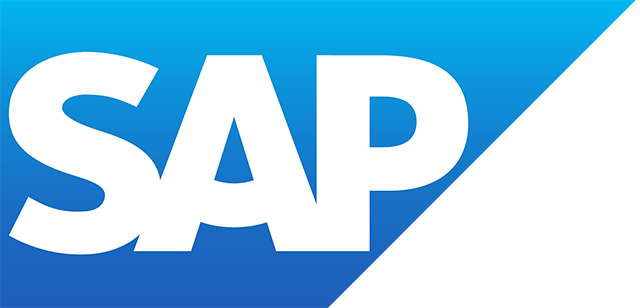SAP Rebate Management
Filter By
Browse By
- SAP Analytics and AI
- SAP Application Development and Integration
- All SAP Application Development and Integration
- SAP ABAP
- SAP ABAP Development Tools
- SAP ABAP Test Cockpit
- SAP API Management
- SAP BAPI
- SAP Basis
- SAP BRF
- SAP Business Application Studio
- SAP CMS
- SAP Design Studio
- SAP Development Tools
- SAP DevOps
- SAP EAI
- SAP EDI
- SAP Extension Suite
- SAP Fiori
- SAP Fiori Elements
- SAP Integration Suite
- SAP Low Code Application Development
- SAP Low Code Automation
- SAP Netweaver
- SAP Release Management
- SAP UI5
- SAP Web Application Server
- SAP Web IDE
- SAP Business Process Management
- SAP Center of Excellence
- SAP CIO
- SAP Customer Experience
- SAP Data and Data Management
- All SAP Data and Data Management
- SAP BW
- SAP BW/4HANA
- SAP Crystal Reports
- SAP Data Archiving
- SAP Data Center
- SAP Data Governance
- SAP Data Integration
- SAP Data Migration
- SAP Data Quality
- SAP Data Services
- SAP Data Strategy
- SAP Data Visualization
- SAP Data Warehouse Cloud
- SAP DMS
- SAP Document Control
- SAP EIM
- SAP ETL
- SAP ETL Tools
- SAP HANA
- SAP HANA Administration
- SAP HANA Deployment Infrastructure
- SAP HANA Studio
- SAP Master Data
- SAP Master Data Governance
- SAP MDM
- SAP Enterprise Architect
- SAP Enterprise Asset Management
- SAP ERP
- SAP Finance
- All SAP Finance
- SAP Accounting
- SAP AR AP
- SAP Asset Accounting
- SAP Billing Systems
- SAP BPC
- SAP BRIM
- SAP Cash Management
- SAP Central Finance
- SAP Controlling
- SAP COPA
- SAP Cost Center Accounting
- SAP Currency Risk
- SAP e-invoicing
- SAP FICO
- SAP Finance Automation
- SAP Advanced Financial Closing
- SAP Financial Consolidation
- SAP Financial Planning
- SAP FX Risk
- SAP General Ledger
- SAP Global Tax Management
- SAP Hyperion
- SAP Order to Cash
- SAP Payment Processing
- SAP Profitability Analysis
- SAP Rebate Management
- SAP S/4HANA Finance
- SAP SWIFT Compliance
- SAP Treasury Management
- SAP Universal Journal
- SAP Governance Risk and Compliance
- SAP Human Capital Management
- SAP Intelligent Technologies
- SAP Platform and Technology
- All SAP Platform and Technology
- SAP Business Technology Platform
- SAP Cloud Connector
- SAP Cloud Integration Platform
- SAP Cloud Migration
- SAP Cloud Platform
- SAP Cloud Providers
- SAP Cloud Strategy
- SAP Digital Signature
- SAP Container Platform
- SAP HANA Enterprise Cloud
- SAP Digital Asset Management
- SAP HEC
- SAP Digital Integration Hub
- SAP Hyperscalers
- SAP Infrastructure
- SAP Messaging
- SAP Smart Forms
- SAP Quality and Testing
- SAP Security
- SAP Spend Management
- SAP Supply Chain Management
- All SAP Supply Chain Management
- SAP APO
- SAP Asset Management
- SAP Business Network
- SAP Digital Manufacturing Cloud
- SAP Digital Twin
- SAP EWM
- SAP IBP
- SAP Inventory Management
- SAP Label Printing
- SAP Logistics
- SAP Manufacturing
- SAP Manufacturing Automation
- SAP MES
- SAP MII
- SAP MM
- SAP MRO
- SAP MRP
- SAP Order Management
- SAP Plant Maintenance
- SAP PLM
- SAP Production Planning
- SAP S&OP
- SAP SD
- SAP SPM
- SAP Supply Chain Planning
- SAP Track and Trace
- SAP Transportation Management
- SAP System Administration
What is SAP Rebate Management?
SAP Rebate Management is the solution that enables companies to define, monitor, and modify sales rebate agreements based on customer, product, or volume-based commitments. It provides transparency in validating and processing rebate agreements with a clear trail of accruals and settlements. Organizations can centrally manage all rebate and discount processes, from calculation and approval to payout and settlement.
What is SAP Rebate Management?
SAP Rebate Management is the solution that enables companies to define, monitor, and modify sales rebate agreements based on customer, product, or volume-based commitments. It provides transparency in validating and processing rebate agreements with a clear trail of accruals and settlements. Organizations can centrally manage all rebate and discount processes, from calculation and approval to payout and settlement.
SAP Rebate Management also offers rebates as an incentive for customers to buy more products or higher volumes. This can help boost sales by presenting potential saving opportunities to current customers.
Key capabilities include:
- Defining rebate agreements based on customer, product, or volume-based commitments
- Monitoring and modifying rebate agreements in real-time
- Validating rebate payments against accruals
- Processing rebates through SAP ERP or SAP Customer Relationship Management (SAP CRM)
Key Considerations for SAPinsiders
Enable the management of rebate contracts and rebate claims at scale with automation. SAP Rebate Management can help organizations manage complex rebate contracts and automate rebate claims processing to improve efficiency and visibility across the entire rebate process while reducing the risk of error.
Leverage opportunities for automation in SAP Rebate Management when integrating with other SAP modules. When SAP Rebate Management is integrated with SAP ERP and SAP CRM, it provides a comprehensive view of rebate data across the entire organization. This can help businesses make more informed decisions about their sales rebate programs.
Explore the added functionality of condition contract management when migrating to SAP S/4HANA. SAP S/4HANA includes a new central and standardized solution for condition contract management for SAP customers. The new functionality enables users to create and maintain condition contracts for customers and suppliers and provides real-time access to actual business volume data directly from transactional documents. SAP Rebate Management does not provide T-codes configuration flexibility for the supplier and the customer. As a result, condition contract management can help companies improve efficiency and accuracy in creating and managing rebate agreements.
55 results
-

 Premium
Premium
Leveraging Smart Grid and AMI Using SAP Application Suites
Reading time: 23 mins
Discover how to administer and use smart grid, advanced metering infrastructure, and smart meters to improve consumer experience and optimize associated energy and operational costs. Gain an understanding of the fundamentals, application, and impact of these emerging technologies and how the SAP Business Suite helps deploy and leverage the value they provide. Key Concept Smart...…
-

Analyzing the Automatic Account Assignment of your SAP General Ledger Accounts
Reading time: 3 mins
Paul Ovigele, Ovigele Consulting Ever wondered how you can easily find out where G/L accounts are assigned in the system? The assignment of accounts is made in several tables depending on which module the table represents, so there has never been an easy way to find out where an account has been assigned without going...…
-

- SAP SRM
 Premium
Premium
National Grid Transmits Procurement to the Cloud with SAP Ariba Solutions
Reading time: 9 mins
In keeping with its commitment to efficiency, National Grid needed to simplify its procurement process for its customers and internal users. After a move to SAP ERP and SAP Supplier Relationship Management (SAP SRM), the business decided a move to the cloud would improve its system scalability as well as the supplier experience. Learn how…
-
-

- SAP Supply Chain Planning
 Premium
Premium
ifm Supply Chain for Planning and Execution Transformation
Reading time: 6 mins
Extending the core ERP capabilities with additional solution functionality can be approached in two ways, namely "add-on" and "add-in" solutions. When it comes to add-on solutions, integration of data, people, and processes is required, which can be a costly and time-consuming process. On the other hand, add-in solutions are natively embedded in the ERP system,…
-

SAP Business One Integration Places Phocas on Connected Planning
Reading time: 2 mins
SAP B1 users now have the potential to redefine their business operations with the right tools to take them forward.
-

Phocas Platform Presents SAP Business One ERP in User-Friendly Way for Finance Teams
Reading time: 2 mins
The Phocas business planning and analytics platform offers data analytics, financial reporting, budgeting, forecasting and rebates in one tool.
-

- SAP Data and Data Management
 Premium
Premium
Bringing Data Access and Analysis to all Businesspeople with Phocas Software
Reading time: 6 mins
In the current corporate landscape, aligning data across the enterprise for robust decision-making presents a continuous challenge for many organizations. The vast amount of data that organizations produce is not only difficult to handle, but also even more challenging to analyze due to data complexity or a lack of in-house expertise. Additionally, with businesses drawing…
-
-

Beyond Lift and Shift – How SAP Solution Extensions Fuel Your Innovation Journey
Reading time: 11 mins
For those moving to RISE with SAP one of the biggest challenges involved in the move are the complexity of the existing data landscape. Most organizations today have landscapes that combine SAP and non-SAP solutions which makes managing data and optimizing business processes more complex. In addition, many organizations struggle with educating internal resources on…
-

Supply Chain Analytics
Reading time: 5 mins
Supply Chain Analytics gives an insight into reforming planning and procurement activities along with intelligent chartering and dispatching of materials. One of the promising features it offers is an overall insight into the business by consuming relevant KPIs via Power BI dashboards.
-

How to Increase Profit Margins in Manufacturing
Reading time: 6 mins
Our Future of Pricing for Manufacturing Report found that 90% of businesses said global uncertainties, such as the pandemic, have impacted the effective management of pricing.
Become a Member
Unlimited access to thousands of resources for SAP-specific expertise that can only be found here.
Become a Partner
Access exclusive SAP insights, expert marketing strategies, and high-value services including research reports, webinars, and buyers' guides, all designed to boost your campaign ROI by up to 50% within the SAP ecosystem.
Upcoming Events
Related Vendors
Your request has been successfully sent


